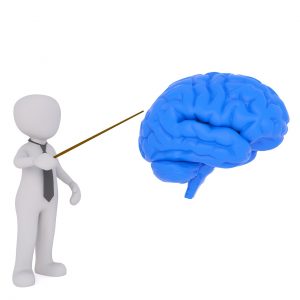Guest Blogger: Brain Enhancement
Today, I am excited to present a post from a guest blogger, Jackie Edwards. Jackie is a freelance editor, researcher, and writer with a focus on education, health and well-being.
Cerebrum Callisthenics: Exercising Your Memory

Like most things in life, some exercises and techniques are better than others and have been shown to yield better results. You can mitigate the effects of dementia, and in the process, master your own memory or hone problem-solving skills such that you find yourself more successful in work and life. Today, we’ll reveal to you some of the best techniques to keep your brain fit, and perhaps, trick it, psychologically, into working better.
Working Memory
Working memory has been described as integral to your overall fluid intelligence—that is, your ability to reason and solve problems you have never encountered before. Working memory itself is your ability to temporarily hold information in your mind for thinking and behaving. It is your ability to recall anything at all on the fly without even concentrating; your unconscious ability to remember.

Science has backed this up, too, and John Hopkins University have demonstrated that a particular working memory exercise benefits your brain. A study performed on children showed that those taking part in the consistent brain-training exercises had improved memory function after 5 days. By taking part in an exercise called the ‘dual-n-back’, in which you are asked to recall sequences of both visual and auditory patterns, the subjects demonstrated the value of brain training exercises for brain health and working memory.
Exercise
Exercise has a huge range of benefits for the mind, body, and more esoterically, the soul. However, you might be surprised to learn that exercise can have an excellent effect on your working memory. A 2016 
Importantly, exercise doesn’t have to be particularly strenuous. The above study only used moderate intensity aerobic exercise (40% maximal oxygen intake during exercise). So, for you, this could be as simple as a jog or run in the park, which will also benefit your brain via the stimulation of senses.
Mindfulness
Mindfulness involves taking stock of your surroundings, thoughts and feelings, and detaching yourself to give a sense of perspective. This is in order to mitigate the effects on your day-to-day actions and to try and remain calm and objective through adversity. Mindfulness helps, therefore, in your overall concentration and ability to continue working as you would normally whilst potentially distracting thoughts are present in your environment.

Brain training seems like a fad, but it really isn’t. The tasks you’ll undertake to flex your brain and it’s all-important working memory are simple and easily completed, with little expertise required. However, in the long run, they’ll bring you and your health dividends.
Jackie Edwards
If you’d like to read more on today’s topic, you can check out the link provided by Jackie: https://www.fractuslearning.com/2017/10/24/brain-exercise-improves-working-memory/








It’s funny, I work in finance and have to do a lot of double checking account numbers and dollar amounts when making purchases, wiring money, or recording transactions. I’ve found I can quickly memorize seven, eight, and even nine digit number sequences now when before I was around four or five. Over time short term memory can definitely improve, and I’ve felt that it helps in all areas. I also exercise more now than when I started so that is probably helping as well.
Great post and fun to see a guest blogger on here.
Great insight! We definitely tend to get better at the skills we practice repeatedly, but it’s good to hear that the applicability of your skill set expanded beyond just that specific domain. And you’re right: Engaging in exercise has been shown to improve memory, so I’m sure that’s added to your increased fluency, too.
Thanks for reading, “Mr. Fancy Schmancy Money Man” 😉 your continued support is always apprecaited